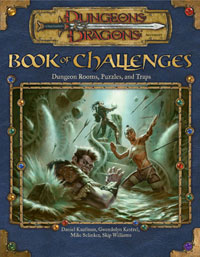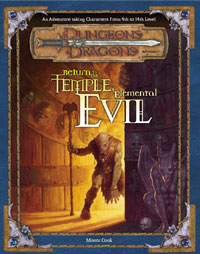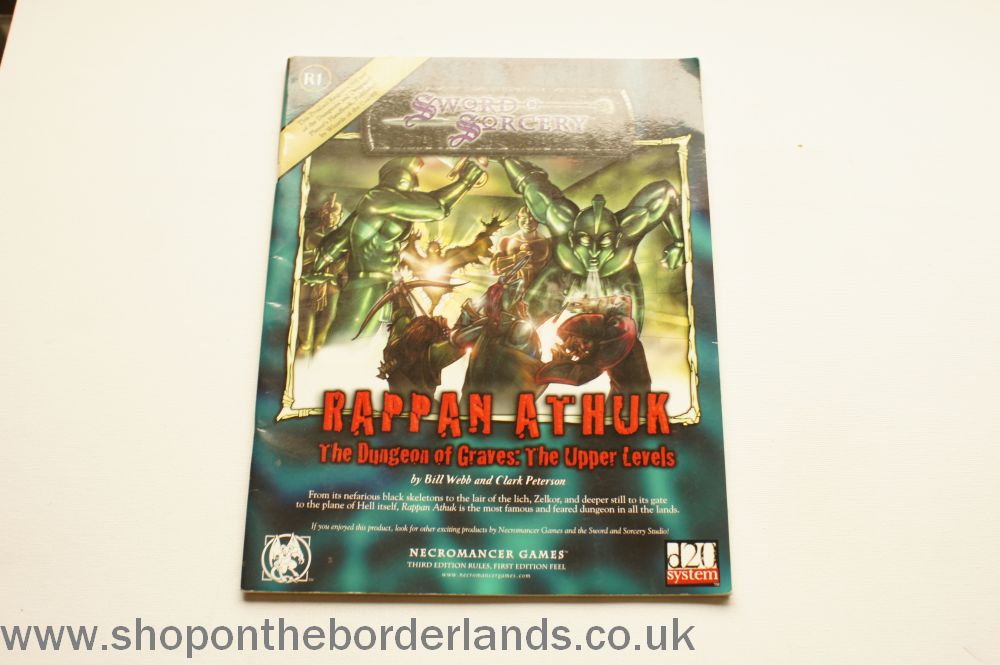Hi folks*!
I had some arguments of the benign kind about the nature of the OSR. Also, I had some online observations regarding „the“ OSR. What became clear quickly is that what is now thought of as „the“ OSR is filled by new arrivals. That is all fine and dandy. Obviously, they produce interesting if not award-winning, stuff on the avant-garde part of the spectrum, and solid adventure fodder on the other. So I am not saying there is not a movement or collection of movements. There are movements with momentum.
But the alleged old-school style itself has been bugging me for quite a long time. Because I do think that it does not exist, and that attempts at explaining the alleged old-school principles to outsiders and new arrivals has been utterly pointless and actually damaging. Especially in communities lacking exposure to actual play of Red Box D&D and especially, the lynchpin, first edition. In the German RPG community, most alleged OSR-fans treat products from „the“ OSR as some kind of Story Game or Forgian Gamism extravaganza. And misunderstand many things. Or they read the primers and make absurdist statements regarding the impossible nature of traps and the impossibility of „the sandbox“ campaign in what they assume to be old-school roleplaying. And I witness the same in English language gaming discussions. It’s either a fad or a „THING“ which to me, as a non-aligned gamer, seems wrong on both accounts. Both receptions are not „real“, that is not authentic in the Hip Hop-sense.
Now, instead of trying to correct and combat these hypocritical misunderstandings (in both directions: positive as well as negative), I want to point out a crucial fact that currently few people actively bring into the discussion:
First Edition never died. At the very last, if there was a renaissance of something people want to call „old-school“, then it now lasts longer than the dark age lasted!
Again: the Revisitation of the period from ’74-’85 has a longer history and more products „in-the-spirit-of-the-period“ than the period itself!
Know then, that it is the year 2017. We all agree that 3rd Edition has had an uninterrupted stretch of publications since 2000. That is 17 years. For those who were around to remember, 3rd Edition was launched by „going back“ to the Dungeon and „going back“ to Greyhawk. Going back to challenge and trap based play.

Quite literally, the game officially returned to the Temple of Elemental Evil.

And it created an uproar, a resurgence in popularity that is holding on to this very day in the form of Pathfinder. It begot not one, but four sequels (3.5, Fuck Edition, 5th Ed., Pathfinder) and many, many offshoots, of which „the“ OSR is just one. So, challenge-based Dungeoneering was ruling supreme from 1974-1985 and starting again in 2000 until this very day. At the very least (below I shave off some more years from the dark age). So we have 29 years of solid Dungeoneering. Seventeen of which are the last 17 years, which is a longer stretch of time than the original 11 years of the golden age. But, you might say, was there truth in these last 17 years? Was this really a resurgence of true Dungeoneering as Gary meant it? Well, at the very least Dungeoneering as the Judges Guild meant it because once 3e and the SRD were out, they immediately started publishing the stuff from the olden days via Necromancer Games.

If I take a peek at the much talked about Wilderlands of High Fantasy, then I can see that Melan himself has a longer publication history in the official Wilderlands for 3E than the entire lifespan of the original Judges Guild was (1976-85 [9] vs 2004-2017 [13])! Furthermore, even before JG via Necromancer games started 1e-ing 3e (itself a vehicle for Gygaxian Dungeoneering), they republished the City State in 1999. Also, let’s not forget that 3e itself was preceded by publication of classic modules in their original form as well as the backbone of any D&D scholarship: The Dragon Magazine Archive in 19-fucking Ninety Nine. That was over 18 years ago. The whole Dark Age only lasted till 1999 then, and while the evil in the form of Dragonlance was around, 2nd Edition hit the shelves only in 1989. Making the proper Dark Ages run for exactly ten years (1989-1999). Ten years of evil 90ies-style overland adventure gaming are the anomaly here. Giving the concept of „1e-like play“ its own name is utterly ahistoric. Sure, there are deviations. The Deviations are legion. And I have and will fight many of them. But do not tell me that the actual baseline, the actual foundation that informs the hobby is some acquired taste like Old Wines or Cigars. No, the masses have enjoyed (or could have enjoyed) True Roleplaying for over 30 years, with only ten years of actual Darkness in between. And even in between 1989 and 1999, First Edition books were still sold officially. And some modules staid true enough, like Night Below or Undermountain. Furthermore, while 2e was that Antithesis of 1e in spirit, the rules were so similar, people could keep playing if they wanted. And some did, enough did. Like medieval monks, they kept the mediterranean wisdom.
So what is left? The ORIGINAL online meaning of old-school. And that is a forceful rejection of First Edition AD&D. A fundamentalist movement that wanted to go all the way back to 1974. But the reasons and repercussions have not been understood by the new arrivals mentioned above. Especially in continental Europe, were 1e was not actually played a lot. And when I see people now, talking about the alleged „old-school“ way of playing, as if it was something novel for a DM to create a world and let players play in them…I cannot take it serious. In fact it is damaging and demeaning to the hobby. Glorifying the past for whatever reasons is becoming more ridiculous with every passing year. Differentiating between 1e and 3e play () is meaningless to the current crop of „OSR“ writers & audience, the subtleties of Encount4rdization and commodification aka Tyranny of Fun(tm) are lost to people, who play 5e and have not witnessed the tactical railroading that Mike Mearls and James Jacobs once brought in. OSR was a term to seperate the „evul“ that was 3e to some people, who rejected it so harshly, that they rejected 1e with it. But these are battles of the past, fifteen years ago. Nowadays one just can talk about rules-light, rules-medium and rules-heavy D&D. And there is whack DMing (mollycoddling the players, railroading etc., Kender, Drizzt you all know that shit…) and True-School DMing (DM makes world, players play their characters, the world reacts ad nauseam).
Dungeoneering, in its many forms, won. Exploring a DM-created world won. There are deviations, but there is no need to put oneself philosophically into some allegedly exotic „old-school“ corner.
Except for marketing purposes.
*This is in english because it is mostly a Kata-rant written for Melan, but I think it would be too pontificating for a blog comment on his beyond formalhaut.
The OSR is a movement with no authoritative definition. Even calling it a ‚movement‘ is just my interpretation. But at this point in time you’re right: it is mostly a marketing instrument to cater to a hobby niche.
When I started role-playing in the 90s, I did so with games that were already old at that time (Stormbringer, MERP, etc.). So ‚old school‘ was just how we played anyway.
Then games emerged that would allow for genre emulation via hero dice, bennies, etc.; and many of those were still 90% traditional RPGs (7th Sea, Deadlands, etc.), but they sometimes allowed for meta intervention–because drama, because genre.
Still further down the road a new crop of games arose where the meta-game suddenly WAS the game (FATE, PDQ, etc.). And it was at that time that I realised that the genre aspect has worn itself out and the magic of my early RPG days got lost. I couldn’t figure out why until it dawned on me: I wasn’t role-playing a character anymore. I was literally only emulating an RPG. Everything I had done prior through roleplay I was now paying for in points. I, the player, became the big brother to my character. His skydaddy. I could step-in and pay the GM to bend the game world against his will into a place where my character doesn’t suffer in-game consequences. And who the hell is the GM anyway to tell me that my character died after I jumped head-first into a spike pit?
The discussions that were going on in the OSR-aligned corners of the web were immensely helpful in not only capturing the spark of my earliest RPG experiences, but eventually exceeding them by teaching a young dog old tricks. They made me understand why my early hobby experiences resonated with me in a way most of the later ones didn’t.
I entered that scene in the mid-2000s and by that time, the term ‚old school‘ was already used as a broader delineator and OSR didn’t mean „carte blanche to publish D&D modules“ anymore, its meaning has already gone beyond D&D and simulacrum thereof.
Old school is a helpful descriptor. There are certain expectations attached to it. But in our corner of the hobby, it’s as useless as Trad RPG. Old school IS RPG. TradRPG IS RPG.
And again we are at the point where these terms only have the loose meaning we assign to it. When I’m talking old school, I’m talking about a design philosophy that harkens back to early D&D–especially OD&D–and some other games of that era (En Garde!, Traveller, TFT, etc.). The rules create a framework where in-character problem-solving becomes a necessity and the game world has a plausability that let’s me make informed decisions. It’s a design philosophy that doesn’t rely on „powers“ (which are just ways to exploit the rules anyway, not to interact with the game world) because it’s just assumed that a fighter fights well, a vampire will try to suck your blood, a werewolf transforms at full moon, and a beholder beholds.
The post is correct in the sense that the old-school movement has been around for a while – Necromancer Games, Dragonsfoot and ODDities all surfaced in 1999 and 2000, making them almost old enough to vote. Yes, Fight On! will be ten next year (but where oh where is Calithena now?)
However, while some kind of old-schoolish gaming has always existed somewhere in some form, that doesn’t mean it was well realised or accessible. Many people who had „never stopped playing 1st edition“ still assimilated popular ideas which were contrary to the old-school spirit (and these people can become rather irate when they encounter the modern old-school movement).
Also, just because it was out there doesn’t mean it was out there for most people. Simply put, the classics of the hobby, and sometimes even information about their contents or even existence, was not available for many gamers – especially European gamers. The first time I saw a demon-cover 1st edition PHB was on display in a game store, sold for the equivalent of $100; and the first time I had one in my hands was when I bought an ancient bootleg copy from an older gamer (which is, mind you, very cool – it is the personal copy of the guy who co-wrote the game I started with!). Nobody in my generation had even heard of Judges Guild.
Without access to good game materials or online information, it was hard to put things together and create a good old-school experience. There were attempts, but the results were mostly half-successes. It was frustrating because we knew – or at least strongly suspected – there was *something* out there, but it was always out of our reach. The best was good substitutes like Palladium, which I love dearly, but Palladium didn’t give you old D&D’s procedures and systematic view of the game.
Then suddenly, the Internet blew the hinges off of a whole vault’s worth of good stuff. There were communities to discover playstyles, discuss games and find advice. Ways to order rulebooks and modules (originally through Western Union, at crazy inflated rates, but still…). And increasingly, a lot of good fan material. What is called the OSR is a heaping big collection of these things, available for anyone, not just secret cabals of the initiated. Hell, some people dislike it because it is *too* accessible, and the kiddos are touching the museum pieces improperly! Well, yeah, it is a mess, and it has problems, and sometimes does things differently than I’d personally like. But it is a whole lot more than you could have access to in the late 1990s – and *that was in the best of cases*. Today, it is all at peoples‘ fingertips, and they are putting it to use.
Note, something like *Philotomy’s Musings* or *The Original D&D Setting* is the real deal – because it is not a jumble of puzzle pieces but a systematic way of looking at things.